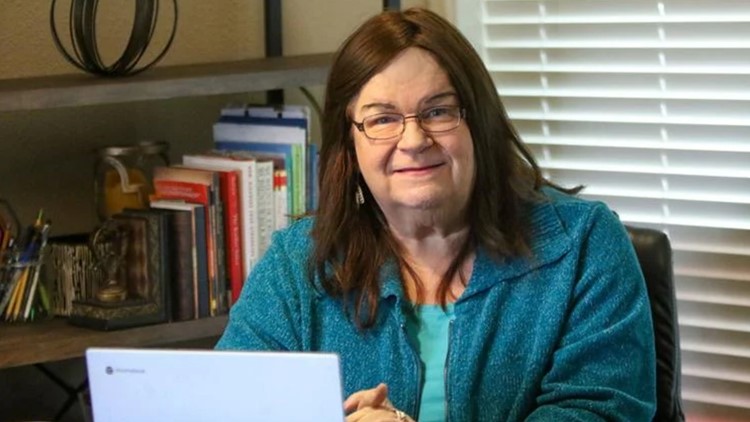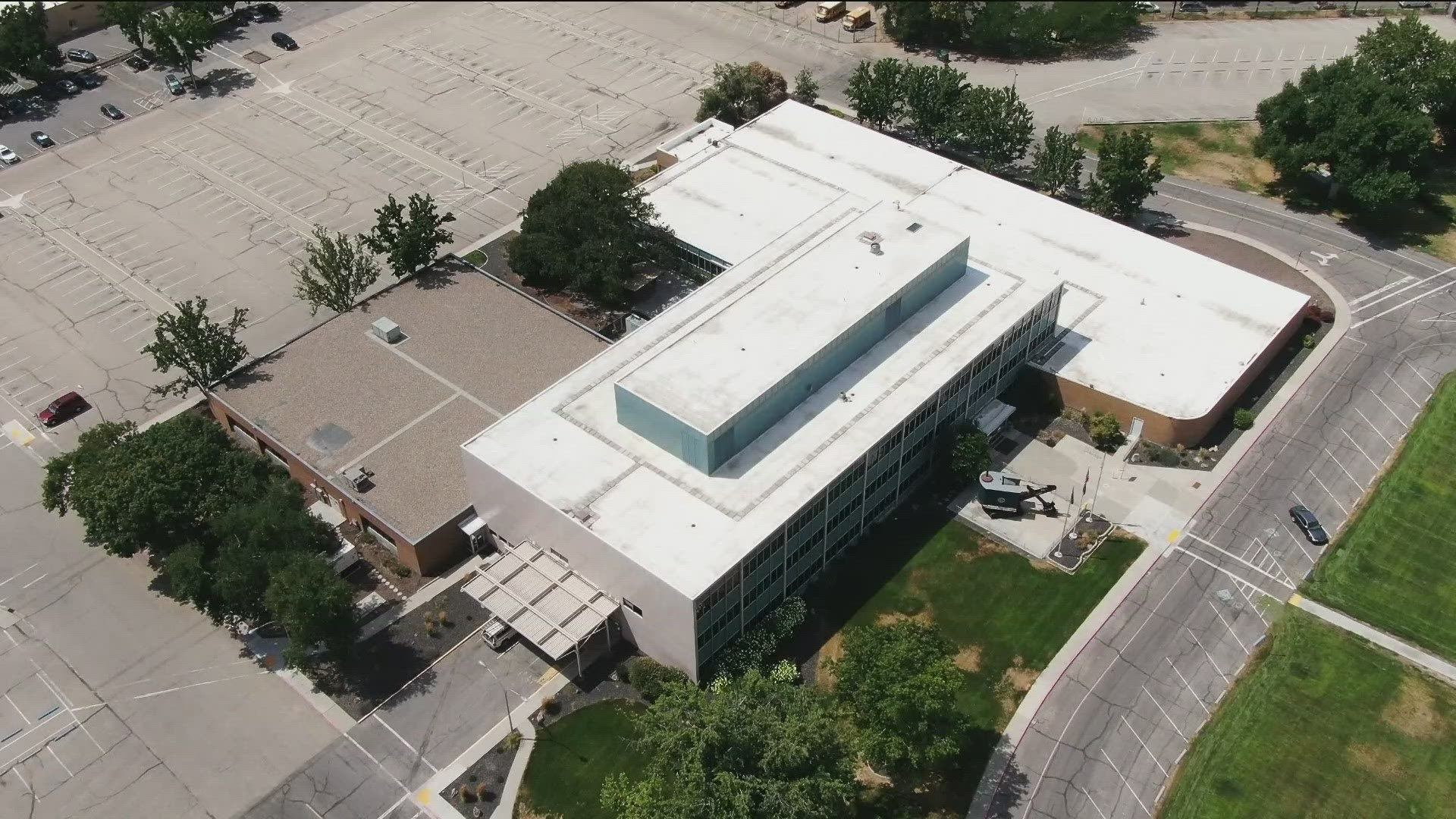BOISE, Idaho — This article originally appeared in the Idaho Press.
Dianne Piggott, moved by decades of tragedy, made a career change late in life.
Piggott, a transgender woman, had grown “sick and tired” of her fellow transgender friends dying by suicide. She finished her bachelor’s degree and went to grad school to become a counselor.
“I thought, ‘if I can do something about that, I will have a meaningful life,’” Piggott, who is 62 years old, said.
Though counseling is a critical resource for transgender individuals, it is not everything, and transgender Idahoans may face barriers to accessing counseling, experts interviewed by the Idaho Press said. This reality calls into question arguments voiced during school board and legislative discussions on matters that affect transgender people: that transgender individuals just need counseling as opposed to counseling in tandem with other forms of gender-affirming care.
The Idaho Press took a deep dive into the benefits and limitations of counseling for transgender young people, and asked what people can do individually and as a society to better support them.
The benefits: addressing gender dysphoria, tending to other mental health issues
Transgender people seek counseling both for gender-related concerns as well as for the same reasons non-trans people seek counseling, such as marriage issues or depression, said Ash Marie, a counseling intern.
The American Psychiatric Association, which publishes the Diagnostic and Statistical Manual of Mental Disorders, does not consider identifying as transgender a mental illness, just as identifying as lesbian or gay is not a mental illness, Piggott said.
However, transgender individuals may be diagnosed with gender dysphoria if they experience profound discomfort because their physical body, the roles they play, or how they present themselves feels out of alignment with how they view themselves and their gender, she said.
Such dysphoria should not be trivialized, and can lead to distress, anxiety, depression, and the person killing themselves, Piggott said.
A counselor does not have a vested interest in their client in the same way a parent would, and can lend an ear to their clients and help them come up with solutions, Piggott said.
More counselors are learning about and understanding transgender issues, she said. Bodies of research show that a strategy that helps transgender clients is helping them make a transition — socially, physically, or both — to align their presentation of themselves with their gender identity, Piggott said.
In a social transition, a transgender boy might cut their hair, start wearing clothing like jeans and hoodies, and play basketball with the guys in their class, Piggott said. For some young people, this kind of transition is enough, Piggott said.
For trans young people unsure about their gender identity, a physical transition could include puberty blockers that halt puberty, Piggott said. Puberty blockers are helpful because puberty results in changes that are irreversible and may heighten a person’s dysphoria, Piggott said. Only later, at age 17 or 18, would the young person be given access to the hormones of their choice.
A physical transition would not include surgery for young people, Piggott said. She had not heard of that happening for children under the age of 18, and generally no earlier than 16 or 17.
It is also important to remember that not all trans people want surgeries, Piggott said.
To access hormones or surgeries, a young person will have had a long-standing relationship with a counselor who can write a letter to their doctor showing that such treatments are needed interventions, Piggott said.
The limitations: barriers to access, lack of training, and bigger societal barriers
While counseling can help a trans person experiencing gender dysphoria, counseling by itself is often not capable of helping transgender people, experts said.
For starters, Idaho, like other states, lacks the number of counselors necessary to adequately serve the community in general, let alone transgender individuals, Marie, the counseling intern, said. Not every insurance program is going to cover mental health care, said Kristin Haltinner, a sociology professor with the University of Idaho. That could create an economic barrier for some families, she said.
And while more counselors have the training to serve transgender folks, that is not always the case, Piggott said.
If parents have made the decision to have their child talk to a counselor, that needs to be someone who can say, “‘tell me about this — what are you thinking? What are you feeling?’” and can advocate for interventions, rather than saying, “‘look, you’ve got a vagina, shush up,’” Piggott said.
The majority of transgender people often have experienced trauma as a result of people not accepting them, and in some cases, being violent toward them, Marie said. While counseling can help a trans person work through trauma, it does not have the power to end the discrimination trans people face in society, Marie said.
If societies worked to lessen barriers for trans people and offered support instead of discrimination, it could help abate gender dysphoria, Marie said.
“That’s really one of the biggest parts of (gender) dysphoria; it’s not just the body, but it’s being outside what is socially accepted,” she said. “Counseling can’t do that.”
Of all of the needs in Maslow’s Hierarchy of Needs, where the psychologist summarized the needs every human has, belonging is the most important one in counselor Jamie Lange’s mind. Now she is worried that the message trans-Idahoans are getting is that they are not deserving of love and belonging.
Lange said she is feeling “a tremendous amount of grief” hearing about legislative efforts to limit gender-affirming care, and changes to bathroom access, such as bills that would force people to use public bathrooms that correspond to their gender at birth.
She said that “with this legislation, our suicide rates most certainly will rise.”
Reimagining gender, reimagining society
Just because American society tends to prioritize two choices for gender — male or female — does not mean other societies do not think about gender differently, Haltinner said. For example, in some Indigenous cultures, as well as in parts of Europe, trans individuals have been recognized and are even given the opportunity to have special roles in society, she said.
“One of the things we know from looking at cultures across time and space is that much of what we take for granted as true or real is simply the result of decisions that have been made for hundreds of years … and so it’s interesting to look at the evolution of gender roles and the gender binary in the United States, because it didn’t have to be this way and it doesn’t have to be this way.”
Kyle Cheesewright, an associate professor of speech, debate, and cultural studies at the College of Idaho, said “gender is a galaxy, not a binary.”
“Gender is an experience that everybody has,” they said. “To treat gender as if male or female is the only thing that exists ignores the ways people’s genders morph or change over time.” For example, masculinity in college is quite different from masculinity when becoming a father, they said.
American society tends to subscribe to lots of black-and-white, good-versus-evil thinking, Lange said.
“That is a very limited way to experience the world, and to experience people, and to experience kindness,” Lange said.
Overcoming that would open possibilities for belonging and being accepting of all peoples, she said.
Moving beyond binaries could also foster the creative solutions needed to build more inclusive spaces, Haltinner said. For example, a genderless bathroom might be made welcoming to anyone by being a private, solo-occupancy bathroom, or by making all stalls floor-to-ceiling for privacy, she said.
Piggott remembers when her gay and lesbian friends would regularly get beaten up because society did not accept them. Over time, that has decreased as those groups have gained more acceptance, the result of work to break down barriers and make it easier for those who come next, she said.
“Things do change.”
This article originally appeared in the Idaho Press, read more on IdahoPress.com.
Watch more Idaho politics:
See all of our latest political coverage in our YouTube playlist:



